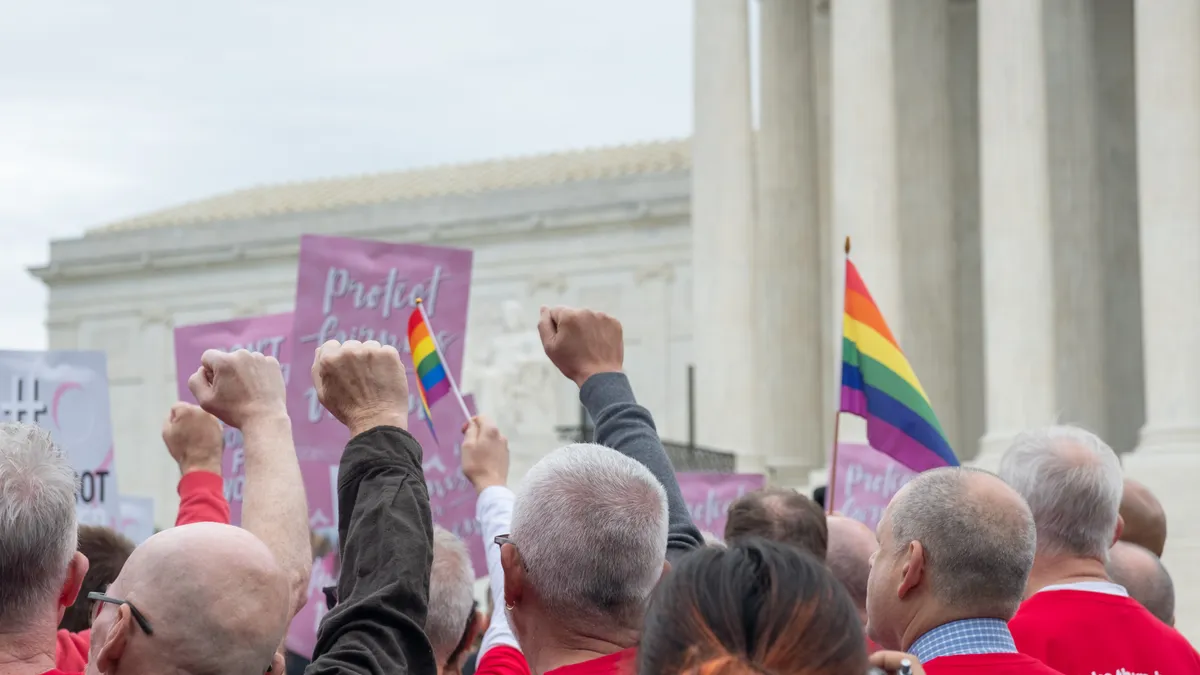Workers who identify as LGBTQ+ experience ongoing challenges such as discrimination and lack of representation in the workplace, according to a March 31 report from Coqual.
Globally, anti-LGBTQ+ discrimination strongly influences where employees work, the report found. In a survey, LGBTQ+ employees said discrimination has greatly impacted their choice of employer, ranging from 18% in Brazil to 56% in India.
“When we started this research a year and a half ago, the world looked different. Since then, the conversation around inclusion has gotten louder, more polarized — and in many places, more dangerous,” Jennie Glazer, CEO of Coqual, said in a statement.
“But this moment isn’t just about setbacks. It’s also about opportunity,” Glazer said. “LGBTQ+ professionals are at the heart of every identity — across race, gender, class, religion, and nationality. If we build workplaces where they feel safe, valued, and seen, we build better workplaces for everyone.”
Inclusive leadership appears to be key, the report found. Most LGBTQ+ professionals reported having role models who were openly LGBTQ+, representing a positive shift from Coqual’s 2016 research.
At the same time, the path to executive leadership still contains challenges, Coqual found. Across markets, many professionals said they believe they must hide their sexual orientation to advance into executive roles, ranging from 30% of survey respondents in Brazil to more than half of respondents in India.
Openly LGBTQ+ executives remain rare, Coqual said. In 2016, no leaders in the Fortune 500 were openly LGBTQ+, which has shifted to 25 on Fortune’s inaugural LGBTQ+ Leaders list.
Even in markets with strong diversity, equity and inclusion frameworks, many LGBTQ+ professionals feel unsafe about being open about their identity at work, the report found. About 1 in 3 LGBTQ+ workers in the U.S. said they’re not out to anyone at work.
Ongoing change in federal agencies and policies may add to the uncertainty. The U.S. Equal Employment Opportunity Commission has ordered its employees to stop processing claims of sexual orientation- and gender identity-based discrimination under Title VII of the Civil Rights Act. Additional announcements have indicated that several Biden-era initiatives to expand LGBTQ+ inclusion may be rolled back as well.
In general, allyship at work appears to be growing, with 60% of LGBTQ+ workers reporting support from colleagues and 54% saying they’re open about their identity, according to a Randstad report. At the same time, about half of LGBTQ+ workers said they face discrimination or prejudice due to their identity, and 41% left jobs where they felt unwelcome.
In addition, more than half of LGBTQ+ workers believe businesses should take a stance on LGBTQ+ issues internally and make consistent changes, according to another Randstad report. Notably, these changes should be legitimate and not tokenistic, workers said, by empowering employee-driven groups, developing a culture of respect and fostering authentic allyship.












